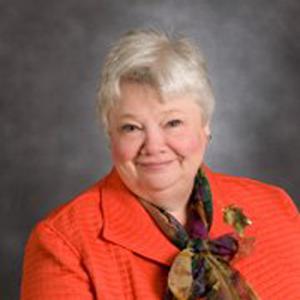Dr. Jeanne Salyer to be Featured on CUTV News Radio
MIDLOTHIAN, VIRGINIA, UNITED STATES, July 25, 2018 /EINPresswire.com/ -- Nearly 70 percent of the healthcare workforce is involved in direct patient care. The more knowledge and training a healthcare professional has, the better the outcomes for patients. That’s why the field of nursing in particular is committed to lifelong learning.
One of the most important things that a nurse needs is an intellectual curiosity. With technological and pharmaceutical advances, things are always going to change. Dr. Jeanne Salyer has seen this evolution firsthand as a clinical nurse and now with her research.
“I grew up in nursing at the bedside, taking care of patients,” recalls Dr. Salyer. “Things patients needed weren't always included in the care that was delivered. Most of it was directed toward medical needs, but it wasn't until I got into my first ICU job that we all started paying attention to patients’ psychosocial needs.”
“If you have somebody in an intensive care until, they don't just need the attention of a nurse or a physician or a therapist, they need their families, and maintaining those relationships with family is really important. Sometimes those are the things that really get patients through the long-haul. I think we really made a difference.”
Nurses are the ones that are at the bedside, they sense that there is a problem and they take the first steps to prevent problems. Under many circumstances, nurse is the first line of defense for the patient.
“As a nurse, you get most of your satisfaction from watching people learn to re-live their lives,” says Dr. Salyer. “Sometimes they have to re-define what's normal for them because it’s not the same as what was normal for them before their illness or injury. We want people to have a family life. We want them to do as much for themselves as they can possibly do with the limitations that they have.”
After a long career in a clinical setting, Dr. Salyer still had questions she wanted to answer. After earning her PhD, she’s spent the past 20 years working with the heart failure/cardiac transplant patient population—most recently, studying psycho-social risk in patients that have been referred for left ventricular assist device implantation.
“When I was a clinician, I always wondered about what things that I could do to improve a person's health status and their quality of life,” says Dr. Salyer. “With this particular group of people, once they're transplanted, some of them experience some fairly significant co-morbidities.
And Dr. Salyer’s research has answered some really interesting questions.
“We know that helping people become confident that they can manage their health is extremely important. Once they become confident, it’s easier to teach them what they need to do to be healthier,” says Dr. Salyer. “Most people want to know what predicts readmission. We want to know what will help them stay out of hospital, which is looking at the problem a different way.”
CUTV News Radio will feature Dr. Jeanne Salyer in an interview with Doug Llewelyn on July 27th at 1pm EDT.
Listen to the show on BlogTalkRadio. If you have a question for our guest, call (347) 996-3389.
For more information on Dr. Jeanne Salyer, visit www.jeannesalyerphdrn.com
Lou Ceparano
CUTV News
(631) 850-3314
email us here

